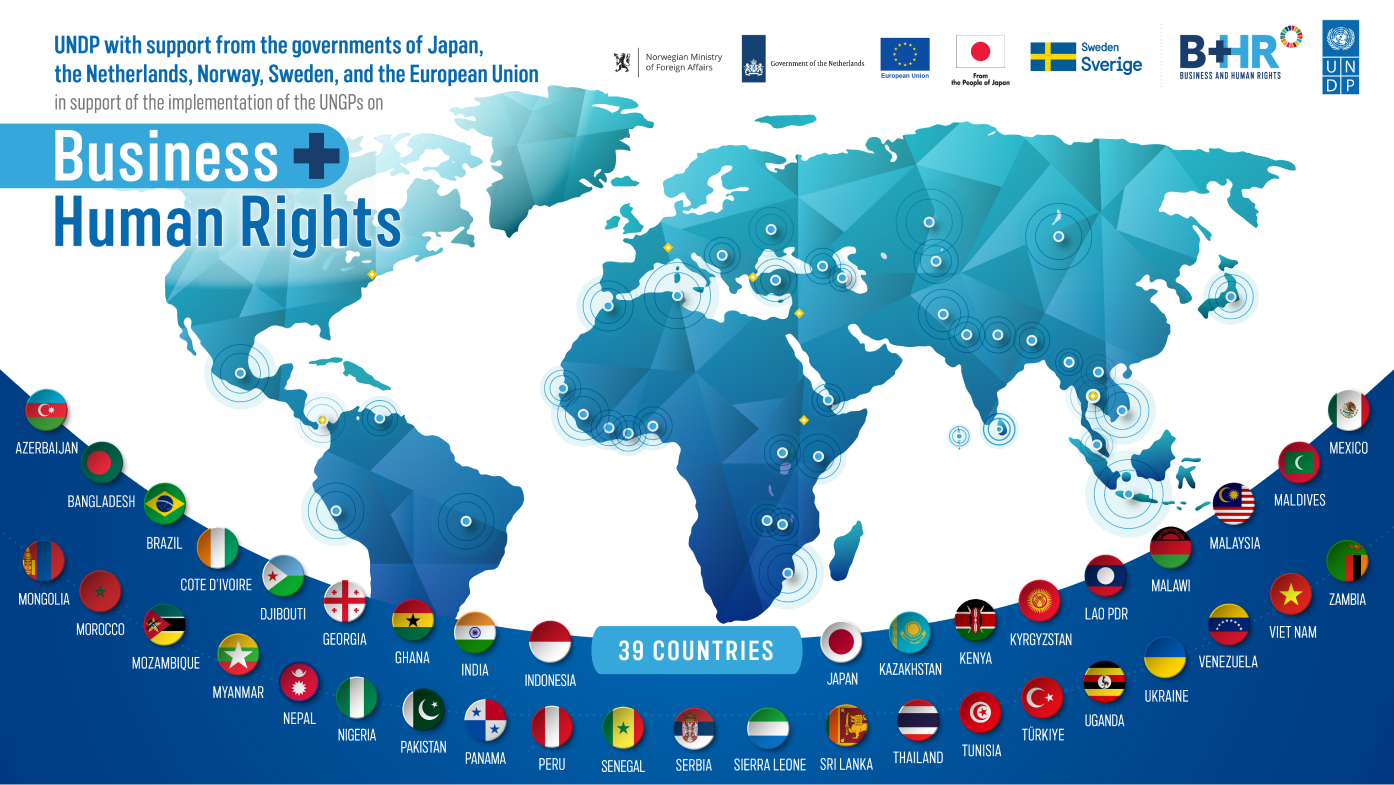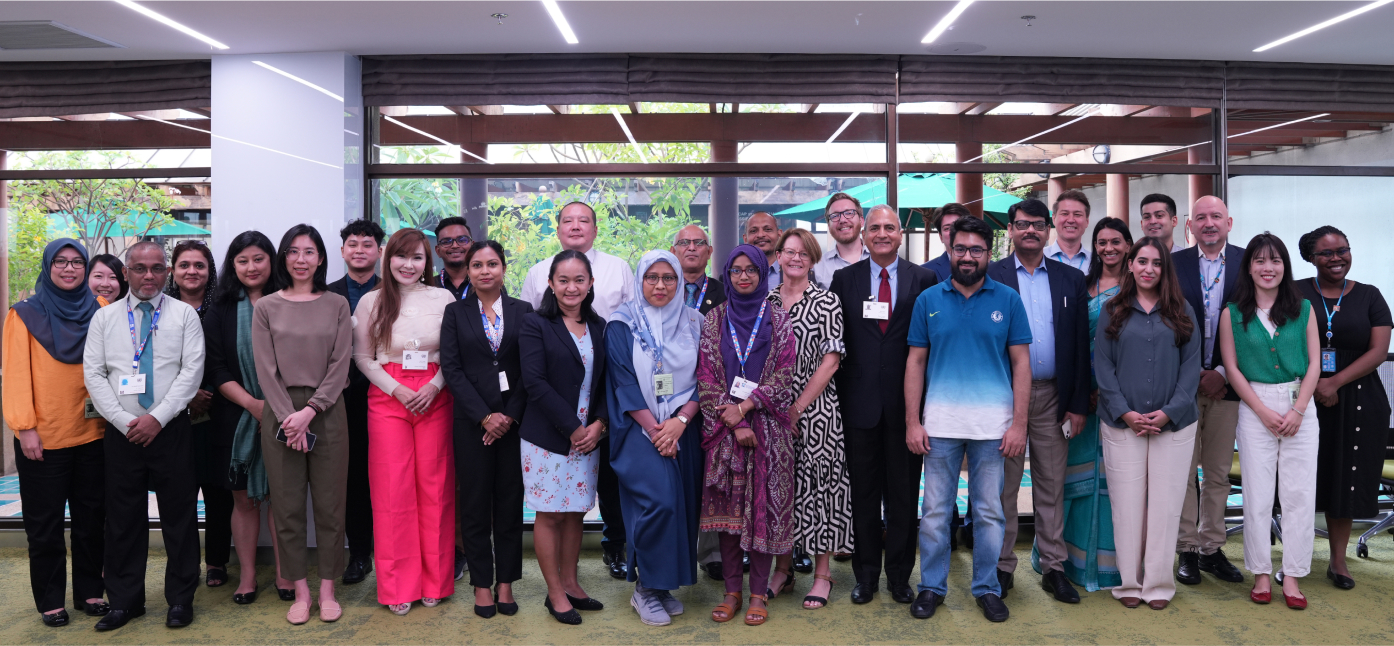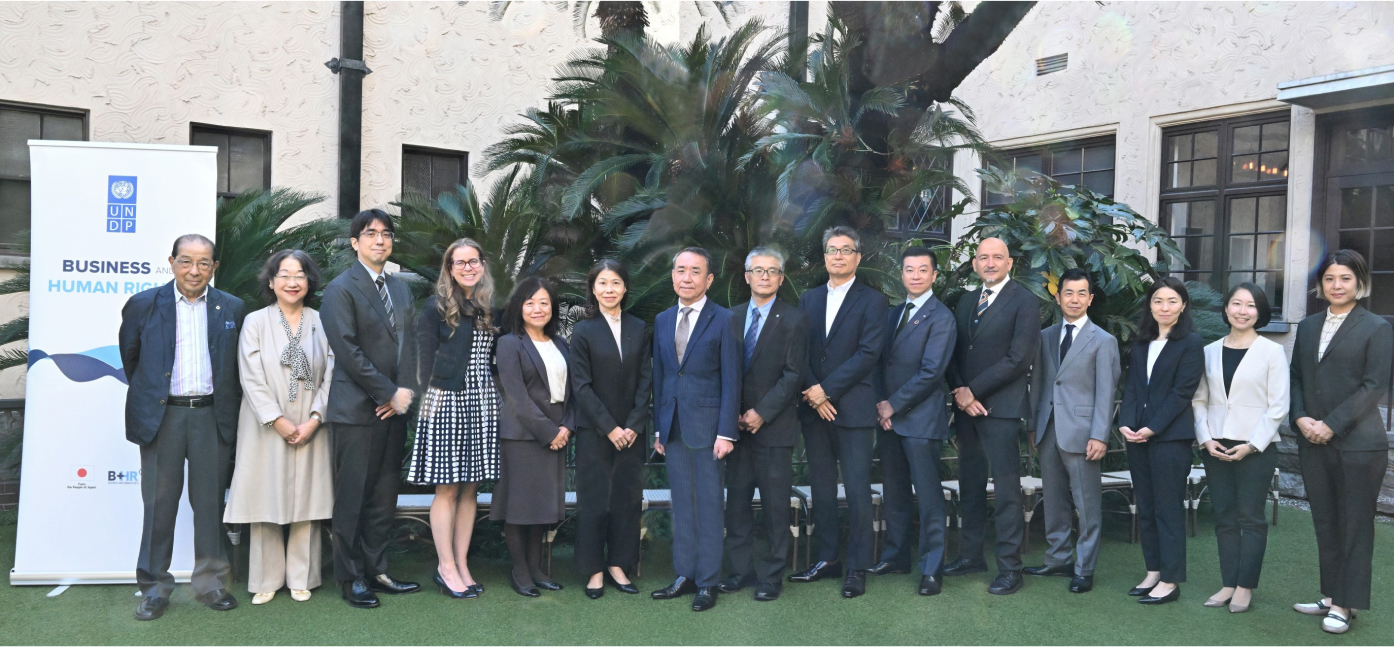OVERVIEW
In 2023, the UNDP Global Business and Human Rights (B+HR) Initiative expanded to 39 countries in Africa, Arab States, Asia and the Pacific, Europe and Central Asia, Latin America and the Caribbean with support from the European Union (EU), Japan, the Netherlands and Sweden. Through the initiative, UNDP assisted governments, businesses, civil society organizations (CSOs), trade unions, national human rights institutions, environmental and human rights defenders, media and others in implementing the UN Guiding Principles on Business and Human Rights (UNGPs).
ADVANCING BUSINESS AND HUMAN RIGHTS: GLOBAL PROGRESS
In 2023, UNDP expanded its work on business and human rights (B+HR) in three regions, launching five new projects in Djibouti, Rwanda, Senegal, Serbia and Zambia, while bolstering efforts in Asia, Europe and Central Asia, Latin America and the Caribbean.
A key achievement of UNDP’s B+HR work is the organization of regional, multi-stakeholder forums that foster exchange, peer-learning and collaboration to advance human rights-centered business practices. For example, the 2nd African B+HR Forum brought together over 450 participants from more than 45 African countries to take stock of the implementation of the UNGPs across the continent.
The first Caribbean Business and Human Rights Dialogue drew over 200 participants from eight countries. It focused on regional challenges and opportunities in labor rights, environmental protection and community engagement, charting a course to scale up programming, national expertise and networks in the region. Similar forums in Asia-Pacific and South Asia remained pivotal in driving regional momentum on B+HR.
UNDP’s technical assistance to governments helped lead to the adoption of national action plans on B+HR (NAPs) in Indonesia, Mongolia, Nepal, Thailand and Viet Nam. UNDP also supported NAP drafting in three countries and facilitated their implementation and decentralization in seven countries.
In 2023, UNDP enhanced assistance to businesses in conducting human rights due diligence (HRDD), including through the B+HR Academy. Within UNDP’s training and guidance for businesses, emphasis was placed on conflict-affected contexts and corporate respect for the right to a healthy environment.
To broaden the reach of the Guide on Heightened Human Rights Due Diligence (hHRDD) for Business in Conflict-Affected Contexts, UNDP developed a global training package and advocated for the guide’s inclusion in the EU Corporate Sustainability Due Diligence Directive (CSDDD). Additionally, UNDP contributed to the expansion of the Global Community of Practice on Business and Conflict by serving on its Advisory Group and convening its expert meetings.
To assist businesses in conducting HRDD in the context of the triple planetary crisis, UNDP drafted a Practical Tool on HRDD and the Environment. The practical tool was informed by consultations with over 200 stakeholders and insights from over 80 businesses. UNDP also co-organized the first Corporate Sustainability and Environmental Rights in Asia (CSERA) Conference, convening over 300 participants to discuss business respect for the right to a healthy environment, where it also provided training on decarbonization and biodiversity risk mitigation strategies.



